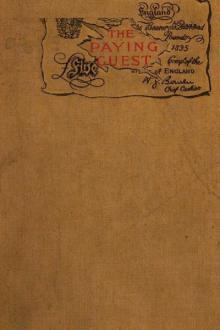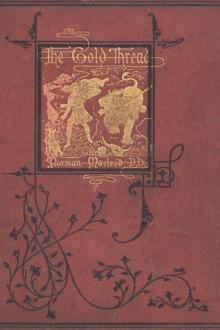Genre Fiction. Page - 184

is "Britannia's Pastorals."
[4:1] Perhaps the most noteworthy plant omitted is Tobacco--Shakespeare must have been well acquainted with it, not only as every one in his day knew of it, but as a friend and companion of Ben Jonson, he must often have been in the company of smokers. Ben Jonson has frequent allusions to it, and almost all the sixteenth-century writers have something to say about it; but Shakespeare never names the herb, or alludes to it in any way whatever.
[4:2] It seems probable that the Lily of the Valley was not recognized as a British plant in Shakespeare's time, and was very little grown even in gardens. Turner says, "Ephemer[=u] is called in duch meyblumle, in french Muguet. It groweth plentuously in Germany, but not in England that ever I coulde see, savinge in my Lordes gardine at Syon. The Poticaries in Germany do name it Lilium C[=o]vallium, it may be called in englishe May Lilies."--Names of Herbes, 1548. Coghan in 1596 says much the same: "I say nothing of them

line, "seein' hestarted so arly on the sea he can't tell when he wasn't there himself."
"How was that matter, Bill?" asked one of his messmates. "They say youhave kept the captain's reckoning, man and boy, these fifteen years."
"That have I, and never a truer heart floated than the man you seeyonder leaning over the rail on the quarterdeck, where he belongs,"answered Bill Marline.
"How did you first fall in with him, Bill?--Tell us that," said one ofthe crew.
"Well, do ye see, messmates, it must have been the matter of thirteenyears ago, there or thereabouts, but I can't exactly say, seeing's Inever have kept a log and can't write; but must have been about thatlength of time, when I was a foremast hand on board the 'Sea Lion,' asfine an Indiaman as you would wish to see. We were lying in theLiverpool docks, with sails bent and cargo stowed, under sailing orders,when one afternoon there strolled alongside a boy rather ragged anddirty, but with such eyes and such a countenance as would m
g sent to prison, and that this inconvenient ex- soldier should be caged up somewhere.
"I am going down to Esher for the week-end. I think I may be able to do something."
The rolling forehead and the emphatic chin became more aggressive.
"I don't like this delay. Now, can you assure me--?"
Beal glanced at the clock.
"I'm sorry; I am due at my hospital at half-past two. But, tell me, what do you mean--exactly--by delay?"
"Nothing is being done."
"It is better that nothing should be done. I presume you are suggesting some form of restraint?"
"Certainly; in my brother's interest."
Beal showed him eyes that were not blind.
"The interest lies all the other way. You'll excuse me; can my maid ring you up a taxi? Before I go, I may as well remind you I don't want your brother fussed or frightened."
Reginald Stretton remained on the hearthrug looking at the opposite wall for something he had meant to say and had forgotten, and Beal left him t

ll boat would be overturned by the great waves. Then Grace ran to the boat, and seized an oar, for she could not bear to let the poor men die without trying to save them; and the father could not let his brave, daughter go alone, so he followed, and they rowed off.
It was hard work pulling against the strong sea, and several times the small boat was almost sunk. But at last it reached the wreck, and William Darling managed to land upon the rock, and with great care and skill helped the half-frozen people into the small boat. Then they were taken to the lighthouse, where Grace warmed and fed them, until the storm ceased, and they could return to their homes.
[Illustration: GRACE DARLING ROWS OUT TO THE WRECK]
=David Livingstone=
At one time many people believed that the middle of Africa was a sandy desert, where nothing could live but camels and ostriches. But they were mistaken. The great traveller, David Livingstone, journeyed into this unknown country, and he found that it w

aking lodgers.'
'No fear of that. This is evidently some well-to-do person. It's a very common arrangement nowadays, you know; they are called "paying guests." Of course I shouldn't dream of having anyone you didn't thoroughly like the look of.'
'Do you think,' asked Emmeline doubtfully, 'that we should quite do? "Well-connected family"--'
'My dear girl! Surely we have nothing to be ashamed of?'
'Of course not, Clarence. But--and "pleasant society." What about that?'
'Your society is pleasant enough, I hope,' answered Mumford, gracefully. 'And the Fentimans--'
This was the only family with whom they were intimate at Sutton. Nice people; a trifle sober, perhaps, and not in conspicuously flourishing circumstances; but perfectly presentable.
'I'm afraid--' murmured Emmeline, and stopped short. 'As you say,' she added presently, 'this is someone very well off. "Terms not so much a consideration"--'
'Well, I tell you what--there can be no harm in dro

essel must necessarily pass over a distance of many leagues, far, far beyond the power of human sight. How marvelous, therefore, must be the instinct which guides them unerringly to resume our company with the earliest rays of the morning light. When, in the arid desert, the exhausted camel sinks at last in its tracks to die, and is finally left by the rest of the caravan, no other object is visible in the widespread expanse, even down to the very verge of the horizon. Scarcely is the poor creature unloaded, however, and left to perish upon the sand, before there will appear in the far-away sky a cloud of vultures, at first mere specks in the blue atmosphere, swooping with lightning speed towards the dying animal, whose bones they immediately strip with terrific voraciousness. One who has witnessed this scene can never forget it. The vultures strain and tear at the carcass, swallowing great pieces of hide and flesh, until at last, when they are completely gorged, they can only rise a few feet from the earth,

han Eric. "Now," said the old woman gruffly, when she took away the remains of the supper, "you have ate what would do me for a week. You won't starve, Master Prince. Go to bed." The old woman left him, but suddenly returning, she discovered Eric on his knees. As he rose, she scoffed and jeered him, and asked, "Do you always say your prayers?" "Yes, always," replied the boy. "Who taught you?" "My mother, who is dead." The old woman heaved a deep sigh, but the boy did not know why. Perhaps she used to pray when she was a little girl herself, and had given up speaking to God, or even thinking of Him, and so had become wicked; or perhaps she thought of some child of her own whom she had never taught to pray. She soon went away without speaking a word more, and Eric was left in darkness. He looked out through the narrow window of his room, but could see nothing but black clouds rushing over the sky. Far down he heard a stream roaring, and the wind, which now blew a gale, came booming over the tree-tops, and howli

is in no true sense the invention of the author; and The Little Clay Cart is the only drama of invention which is "full of rascals."[10]
But a spirit so powerful as that of King Shudraka could not be confined within the strait-jacket of the minute, and sometimes puerile, rules of the technical works. In the very title of the drama, he has disregarded the rule[11] that the name of a drama of invention should be formed by compounding the names of heroine and hero.[12] Again, the books prescribe[13] that the hero shall appear in every act; yet Charudatta does not appear in acts ii., iv., vi., and viii. And further, various characters, Vasantasena, Maitreya, the courtier, and others, have vastly gained because they do not conform too closely to the technical definitions.
The characters of The Little Clay Cart are living men and women. Even when the type makes no strong appeal to Western minds, as in the case of Charudatta, the character lives, in a sense in which Dushyanta[14] or even Rama[15] can

